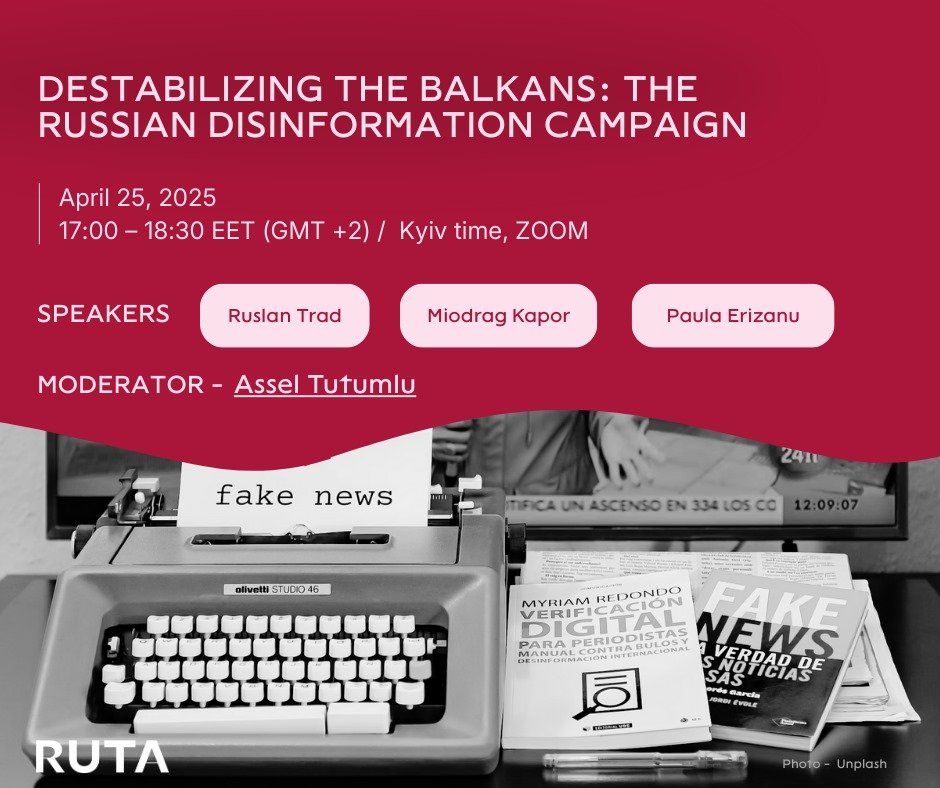Destabilizing the Balkans: the Russian Disinformation Campaign
As the European officials debate whether the Serbian government used sonic weapons against protestors, the world is succumbed to the violent fights over highly polarizing ideas and ideologies be it in the United States, the Balkans, Turkey, or Georgia. The apocalyptic language of good vs evil, freedom vs tyranny, hegemony vs freedom is evoked on both sides of the battlefield.
Russia is one of the main actors in framing discussions through divisive language and polarizing opinions. Russian influence and involvement into internal affairs of sovereign states is multifaceted. Scholars created a new term for such involvement: the sharp power (Walker, 2018; Stefanov and Vladimirov, 2020; Dobson, et al, 2023). Sharp power of authoritarian regimes takes advantage over democratic institutions and manipulates information to undermine the integrity of democratic foundations. Countries in the Balkans are at the forefront of Russian sharp power. It often involves the spread of the specific narratives to justify the policy alignment and sympathies with Russia but also works through the support of specific candidates and opinion-makers who spread false information through the elaborate networks of proxy organizations, media channels, and titushki – all of which belong to the destabilization toolkit (Bechev, n.d.).
This webinar brings together an exceptional group of leading researchers and journalists who have devoted much of their work to exposing lies and manipulation of information in the region and beyond.
Speakers:
Ruslan Trad was a research fellow at the Atlantic Council’s Digital Forensic Research Lab (DFRLab). Trad specializes in Eurasia, Syria, conflicts, hybrid warfare, and mercenary groups. Before joining the DFRLab, he worked as a risk analyst, consultant, and freelance journalist. In recent years, his work has focused on open-source intelligence (OSINT) investigations and due diligence reporting. Trad is the author and co-author of three books and numerous articles on the Syrian civil war, Russian foreign policy, and security. Trad is a member of the Association of European Journalists–Bulgaria and co-founder of De Re Militari, a Bulgarian online journal for conflict analysis. During his journalism career, he reported as a correspondent from different countries, including Lebanon, Turkey, Iraqi Kurdistan, Saudi Arabia, Tunisia, and Thailand. In 2014, Trad was awarded Activist of the Year by the Helsinki Committee for his coverage of the Syrian war. His work has appeared in outlets including Bellingcat, BBC, Carnegie Middle East Center, New Lines Magazine, Die Presse, European Eye on Radicalization, Vocal Europe, Bild, Vocativ, IB Times, Der Standard, Muftah, Internazionale, and Al Jazeera.
Miodrag Kapor is a US educated legal practitioner and a social science scholar with a background in economics and international law, focusing on energy geopolitics. He is a head of the ‘No Immunity from Accountability’(NIFA) project, which is called ‘Monitor Odgovornosti’ in Serbian with a mission to comprehensively identify and analyze government-organized nongovernmental organizations (GONGOs) and promoters of illiberal democracy in Western Balkans, so that society, policy analysts, and ultimately, public policymakers gain a better grasp of this deleterious development. During his career, he has written quite a few analyses on Russian-Serbian energy relations, as well as on anti-liberal public manipulation, mostly carried out – though not limited to – a joint Russian-Serbian disinformation campaign. He has collaborated with Finnish expert on social media and disinformation Pekka Kalloniemi, and been interviewed by the BBC, Al-Jazeera, Neue Zürcher Zeitung, Georgian Media Development Foundation (MDF), etc.
Paula Erizanu is a Moldovan journalist and writer based in Chișinău. She collaborates with the BBC, The Guardian, London Review of Books, Financial Times etc. She was shortlisted for the Culture Journalist of the Year Award in the UK’s Words by Women competition (2019). Her first book, Aceasta e prima mea revoluție. Furați-mi-o (This Is My First Revolution. Steal It, Cartier Publishing House, 2011) was a creative non-fiction account of the 2009 pro-democracy protests in the Republic of Moldova, which won the Most Beautiful Book Production prize in Leipzig, offered by UNESCO Germany. Paula Erizanu then published a volume of poetry, Ai grijă de tine (Take care of yourself, 2015) and co-edited, in collaboration with Alina Purcaru, the pioneering three-part anthology Un secol de poezie român scrisă de femei (A Century of Romanian Poetry Written by Women, 2019-2021). For her feminist historical novel Ard pădurile (The Woods Are Burning, Cartier Publishing House, 2021), she received the Young Writer of the Year 2022 award at the Young Writers Gala in Bucharest, Romania.
